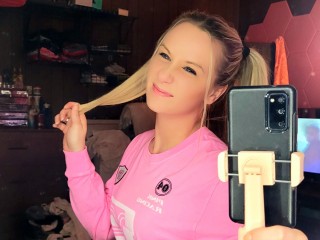
Anti-Porn Bill Would Define Coercion as a Need to Earn Money.
Sex workers who willingly participate in the online adult entertainment industry but also do it because they need to make a living could be deemed victims of “coerced consent” if Senator Mike Lee (R-UT) can convince the Senate to pass his PROTECT Act and then get the President to sign it into law.
The PROTECT Act is short for the Preventing Rampant Online Technological Exploitation and Criminal Trafficking Act. It would ostensibly address the uploading and distribution of sexually explicit imagery, including Deep Fake AI, without proof of all models’ ages and express permission. Any content reported as lacking this proof would need to be removed within 72 hours of an eligible request. The laudable goal is said to be to prevent “child sexual abuse material” (CSAM) and “non-consensual intimate imagery” (NCII).
But that’s not all it would do.
Currently, the bill would effectively make consensual sex work illegal unless an adult who wanted to indulge in it didn’t have any “economic circumstances” to motivate it. In addition to criminalizing the production of explicit content that has been created as a result of “fraud, duress, misrepresentation, undue influence, or nondisclosure,” or that features a minor, a person who “lacks capacity,” or is being otherwise exploited, it casts a wide net. Under the label of “Coerced Consent” those who shoot content including performers who are immigrants, pregnant, disabled, or suffer from addiction could be in legal jeopardy.
Of course, there are already strict federal obscenity laws in place with the U.S. Department of Justice in charge of enforcing them. Porn producers are already required to be in 2257 compliance, which includes having proof of identity, age, and consent, all stored with a custodian of records who is usually a CEO, senior executive, or lawyer. There are serious civil and criminal penalties for falsifying or not keeping these records.
As Michael McGrady observes on TechDirt, the list of people who would no longer be allowed to legally consent to performing or modeling in the nude or even semi-nude, “completely outlaws consensual and legal pornography productions, which is otherwise protected under the First Amendment.” A Senate floor confrontation between Sen. Lee and Facebook/Meta CEO Mark Zuckerberg made it clear that it would not only be sites dedicated to pornography or sexual topics but also any “interactive computer service” would be affected.
Elizabeth Nolan Brown observed in the libertarian magazine Reason, that websites would not only need to collect statements of consent from performers but store them (one for each image or video) and submit forms that do not yet exist to the U.S. Attorney General for approval. Making things even more complicated is the fact that the law would apply to explicit, saucy, and even incidentally or accidentally titillating images posted in the past, present, and future. As Brown sums it up, “Since no existing image has been accompanied by forms that don’t yet exist, every existing pornographic image (or image that could potentially be classified as ‘intimate’) would be a liability for tech companies.”
The inconveniences continue and endanger those it claims are vulnerable if the PROTECT Act becomes law as written. Regardless of why a person’s image is somehow sexually noticeable, every one of them will be required to include their legal names in the copious amounts of paperwork needed to stay on the right side of the law. This means amateur porn, professional porn, pinups, boudoir shots, strippers, escorts, nursing mothers, teens in semi-sheer bikinis, and even art or theater; all of them would be on record as appearing in and/or creating and uploading the content. Since that would be necessary for every distribution platform and every image or video, including Instagram, Twitter, TikTok, Facebook, and others.
This makes it easier for content creators and stars to be stalked, harassed, hacked, or investigated by the government or those who work within it.
Further complicating things for hosting platforms is the need for a statement specifying where and for how long each instance of potentially qualifying imagery can be displayed, as well as what specific activity the model has consented to have recorded and distributed. If that information is not collected, stored, and regularly updated, the penalties are severe. If a sex act not included in the list occurs in the submitted content, it fails to pass the test and is eligible for legal action.
McGrady sums up what he feels is the real goal of the supposed anti-trafficking bill by providing a short list of its supporters, which include the American Principles Project, Heritage Foundation’s Project 2025, and the National Center on Sexual Exploitation, the latter of which is known for its anti-porn and pro-Christian Nationalist policies. The NCSE has deemed Cosmopolitan Magazine to be a pornographic publication.
Lee’s PROTECT Act has been read twice by the Senate as of January 31, 2024, and has been referred to the Committee on the Judiciary for further action.






















